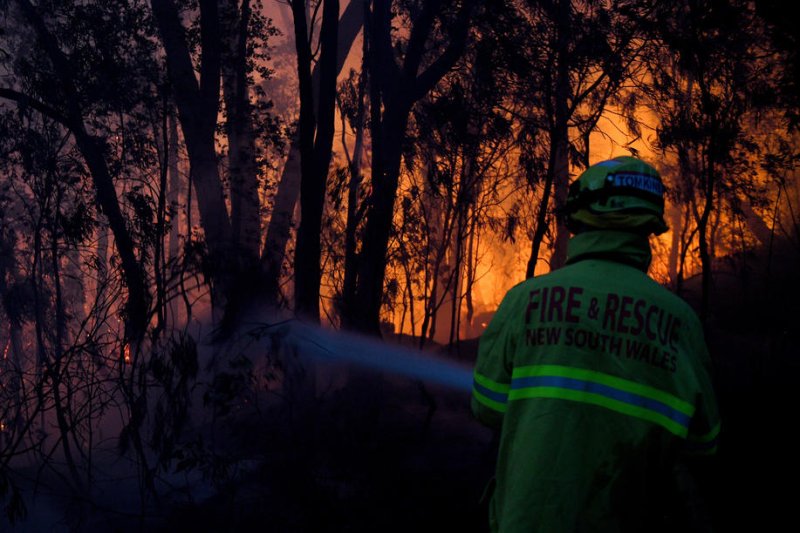A new review of the scientific literature suggests climate change is increasing the length of fire season and boosting the risk of wildfire. Photo by EPA-EFE/Dan Himbrechts
Jan. 14 (UPI) -- Climate change has increased the risk of wildfire across much of the globe, according to a new review of scientific literature.
As the destructive rash of wildfires continue to burn across Australia, scientists at the University of East Anglia, Met Office Hadley Center, University of Exeter and Imperial College London set out to examine the relationship between climate change and wildfires.
Researchers reviewed the findings of 57 peer-reviewed papers, all of which found links between climate change and wildfire prevalence and severity. The studies showed a variety of factors linked with climate change, including high temperatures, low humidity, low precipitation and high winds, boost the risk of wildfire.
"Overall, the 57 papers reviewed clearly show human-induced warming has already led to a global increase in the frequency and severity of fire weather, increasing the risks of wildfire," Matthew Jones, senior research associate at UEA, said in a news release. "This has been seen in many regions, including the western U.S. and Canada, southern Europe, Scandinavia and Amazonia. Human-induced warming is also increasing fire risks in other regions, including Siberia and Australia."
As the concentration of greenhouse gases in the atmosphere increases, so do global temperatures, leading to extreme heat and prolonged droughts. When hot and dry weather persists, wildfires are more likely to spark and spread.
As a result of the increase in hot and dry conditions, the length of the so-called fire season has increased, according to the latest review of the scientific literature. Scientists determined the fire season has increased in length by an average of 20 percent over the last two decades.
The results of the research review were published this week on the new online platform ScienceBrief.org.
According to the researchers responsible for the new review, there are steps humans can take to mitigate the increased wildfire risk.
"There is also evidence that humans have significant potential to control how this fire risk translates into fire activity, in particular through land management decisions and ignition sources," Jones said.
Limiting global warming to 2 degrees Celsius will help contain the growing risk of wildfire. Scientists also suggest policymakers can adjust land management and emergency response strategies to account for the increased risk of fire.
"Wildfires can't be prevented, and the risks are increasing because of climate change," said Colin Prentice, professor at Imperial College London. "This makes it urgent to consider ways of reducing the risks to people. Land planning should take the increasing risk in fire weather into account."















